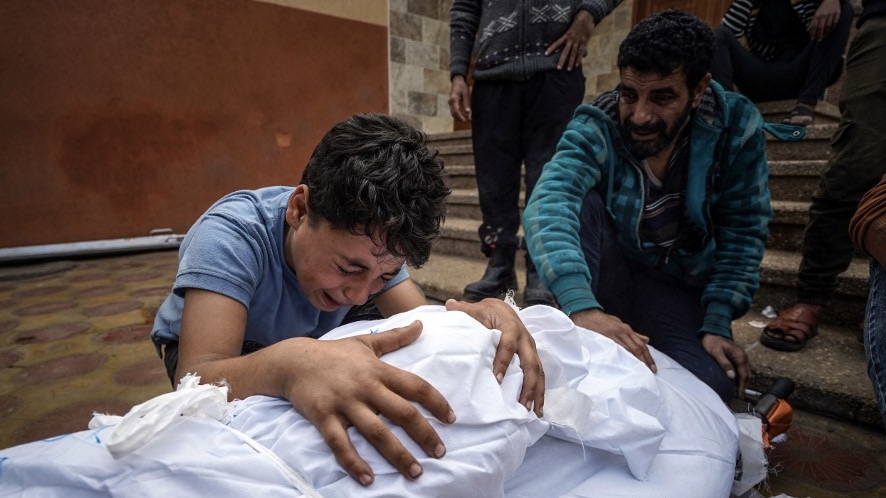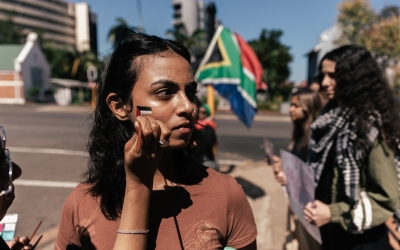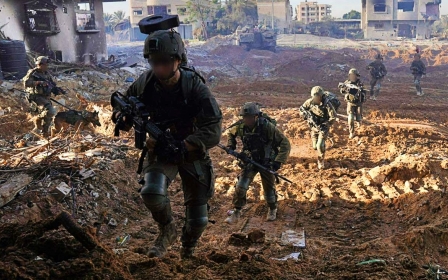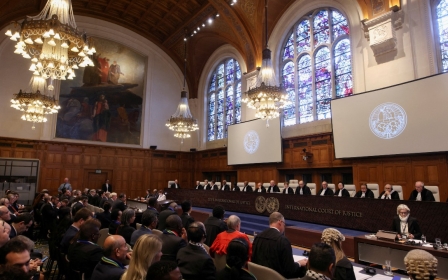War on Gaza: For humanity's sake, the ICJ must choose the correct path

Alongside many others, I watched on anxiously during the South Africa v Israel genocide case at the International Court of Justice (ICJ) in the Hague.
After considering both submissions, one thing is clear: Israel’s view is dangerously far apart from South Africa’s. It was utterly unapologetic and the rhetoric and mental gymnastics should be a serious cause for concern.
There can only be one conclusion: no matter how difficult it is to implement as part of its provisional measures, the ICJ must order a ceasefire.
Israel denies it violated international law despite the evidence South Africa presented and the unimpeachable fact that in 100 days over 24,100 Palestinians have been killed during Israel's assault on Gaza, with the majority being women and children.
These numbers will continue to rise, and with so many lost under the rubble, the true figure is likely already much higher.
If there is no ceasefire ruling, we run the risk that Israel will see this as a green light for its actions and will increase the ferocity of its attacks in Gaza.
More people will die, more people will be displaced and more people will starve. This will increase the polarisation of the occupation and add fuel to the volatile situation, provoking others to join the violence.
Escalation
With the escalating tensions in the region so fraught, a no-ceasefire ruling would add fuel to the fire.
The United States and the United Kingdom attacked Yemen between the ICJ hearings.
Cynically, many will read that attack as an intentional distraction from the proceedings. Certainly, there can be little argument that the attacks were timed for military necessity - the Houthis have not killed a single person in their operations.
With rockets fired at US naval destroyers since as early as 19 October, the timing raises questions at the very least.
The potential for further escalation is clear. The Houthis have reportedly already targeted a US-owned vessel in the wake of the strikes, putting in serious doubt claims that the UK and US acted in order to stabilise the region or the national security status of their own countries.
The risk of terrorist attacks and radicalisation is no doubt increasing. Regarding solidarity protests with Gaza, politicians, including government ministers, have launched tirades of dog-whistle politics that have been stoking division. Launching strikes on Yemen is not likely to ease these tensions.
There is a divide growing on the international stage, too. Thinking back to the South Africa v Israel case for a moment, something becomes glaringly obvious when you start to look at international support.
Germany and Canada have expressed their backing for Israel’s position while South Africa has been supported by Turkey, Malaysia, Bolivia, Brazil, Colombia, Jordan, the Maldives, Namibia, Venezuela and the 57-country Organisation of Islamic Cooperation (OIC). The support for South Africa's position has been growing rapidly among Global South countries.
Bosnia's long shadow
It is clear the Global South no longer accepts the pick-and-mix approach to the "rules-based international order" implemented by the Global North. Instead, the Global South seems to be in support of international law and a genuine application of the rules-based accountability structures and institutions that have been created since the Second World War.
It is crucial that our institutions work to halt unlawful (and even lawful) violence. When the majority of the world sees it for what it is, surely the institution set up for this purpose should be able to see it too?
Once again, the ICJ finds itself at a crossroads. This time, it must be bold, it must take a stand and it must make history
The ICJ cannot fail to intervene with a ceasefire order. If it does, it will repeat the mistakes of its past, such as in 1993, when it failed to order a ceasefire in Bosnia.
Genocide followed that failure and the long shadow of that failure continues to haunt the ICJ.
Once again, the ICJ finds itself at a crossroads. This time, it must be bold, it must take a stand and it must make history.
It must order a ceasefire for Israel and all armed groups in the region. This must be enforced by the ICJ calling on the UN to supervise the ceasefire with UN troops on the ground in Gaza, the West Bank and on the borders.
The killing must stop. It can be done. History can be made.
The views expressed in this article belong to the author and do not necessarily reflect the editorial policy of Middle East Eye.
Middle East Eye propose une couverture et une analyse indépendantes et incomparables du Moyen-Orient, de l’Afrique du Nord et d’autres régions du monde. Pour en savoir plus sur la reprise de ce contenu et les frais qui s’appliquent, veuillez remplir ce formulaire [en anglais]. Pour en savoir plus sur MEE, cliquez ici [en anglais].






